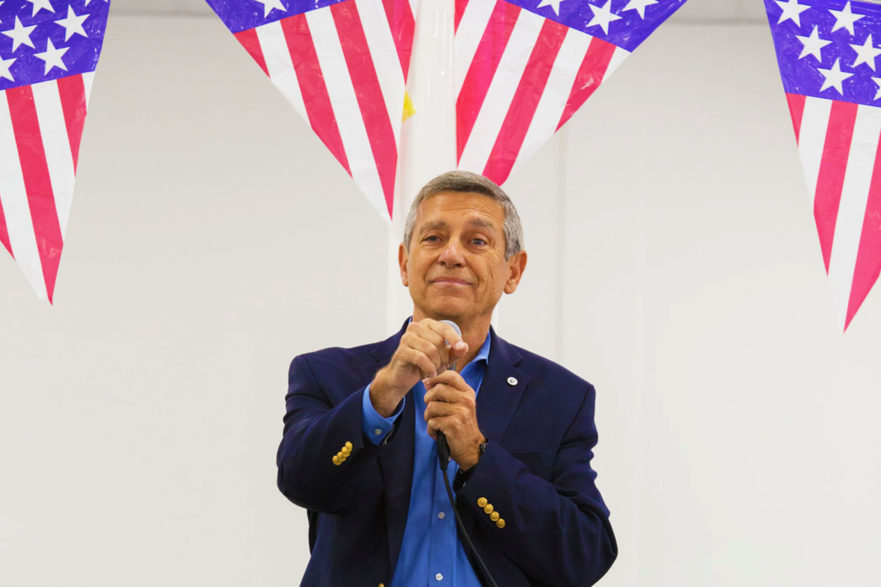Democratic congressional candidate Doug Applegate. Photo courtesy of www.applegateforcongress.com.
A Democratic congressional candidate favored to unseat Rep. Darrell Issa (R-Calif.) next year is said to be highly reticent to agree to a demand by the Democratic Congressional Campaign Committee to demonstrate unity with his rival Democratic candidates, TYT has learned.
Two sources familiar with his thinking told TYT that Doug Applegate—who ran against Issa in 2016 and lost narrowly, by 0.6 percent—was one of the Democratic hopefuls to receive a DCCC “memo of understanding” asking them to agree to forswear attacks that might hurt their rivals in the general election and to attend a “unity event” with their rivals after their primaries. One version of the memo, first reported by TYT, gave a deadline of Friday, December 8, to reply, but it was not clear whether Applegate faced the same deadline.
The sources requested anonymity because they were not authorized to disclose Applegate’s thinking. Neither the campaign nor the DCCC responded to requests for comment.
Upon receiving the endorsement of the Progressive Democrats of America in last year’s race, Applegate said that he was “in line with all the issues and the core values of Bernie Sanders’ campaign.” He has been endorsed in his 2018 campaign by National Nurses United, which was a major advocate for the Sanders primary campaign.
Applegate’s main opponents in the Democratic primary are associated with Hillary Clinton. Michael Levin, depicted in local media as Applegate’s most viable challenger due to his fundraising prowess, was a “bundler” for Clinton’s 2016 campaign and threw a lavish fundraiser for her on August 23, 2016, at the Montage Laguna Beach resort. A spokesperson for Levin did not reply to a request for comment.
The other Democratic candidates are Sara Jacobs, granddaughter of Qualcomm founder Irwin Jacobs, who served as a foreign policy advisor for the Clinton 2016 campaign, and Paul Kerr, a San Diego real estate investor.
Issa won re-election last year despite the fact that Clinton beat Trump by 7.5 percent in that district. Roll Call lists Issa as the most vulnerable Republican incumbent in the country.
As TYT reported, the memo was seen by some progressives as squelching dissent from the party’s Sanders wing and pushing to funnel money toward party insiders. The memo requires that candidates allocate 75 percent of their funds for “paid communications”—widely seen as a giveaway to the party’s professional consultant class. Requirements for dealing with sexual harassment complaints on campaigns were criticized as toothless for not establishing protocols for seeking redress outside the campaigns.
Applegate does not appear to be alone in his reaction to the memo. According to multiple people familiar with the thinking of candidates who received it, there is a fear that declining to sign the memo could prompt retaliation by the DCCC, which could encourage affiliated organizations not to support disfavored candidates in primary contests. None of the candidates have yet spoken publicly about the memo.
(Editor’s note: Applegate has been endorsed by Justice Democrats, a political organization cofounded by Cenk Uygur, the CEO of The Young Turks. TYT Investigates, a division of The Young Turks, is unaffiliated with Justice Democrats.)
Related: Leaked Memo: Democratic Campaign Committee Demands “Unity” of 2018 Candidates


